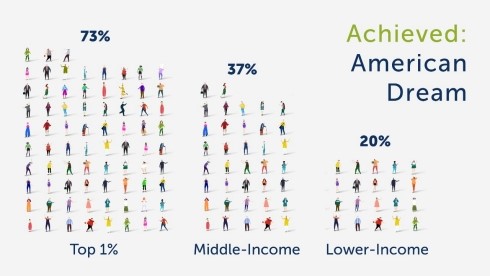
A new poll from Robert Wood Johnson Foundation, National Public Radio, and Harvard T.H. Chan School of Public Health describes in dramatic detail the problem that middle- and lower-income household members face when it comes to affording the needs of life in the United States of America.
Unexpected medical or dental bills, food insecurity, skipping a doctor’s appointment or going without medication, finding safe and affordable housing. These are just some of the worries families face due in part to climbing income inequality in the United States.
Key finding include:
- Significant concerns from the middle class with nearly 50% reporting considerable problems paying for medical bills, dental bills, and prescription drugs.
- Food insecurity and unaffordable housing are still a chief concern for 3 in 10 lower-income adults who reported serious difficulty in paying for food and nearly 1 in 5 middle-income adults that expressed trouble in finding affordable housing.
- Health care access is still out of reach for 26% of middle-income earners and 31% of lower-income adults.
- An unanticipated expense of $1,000 would be difficult to pay for more than two-thirds of lower income adults and one-third of middle-income adults.
- Despite the problems facing many middle-and lower-income Americans, the majority of adults across income levels believe the American Dream is still alive and within reach.
More at Life Experiences and Income Inequality in the United States
